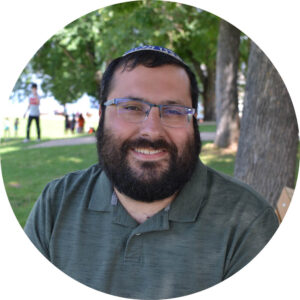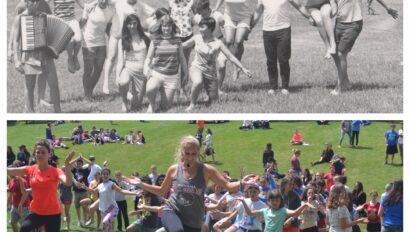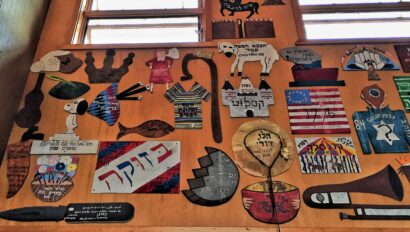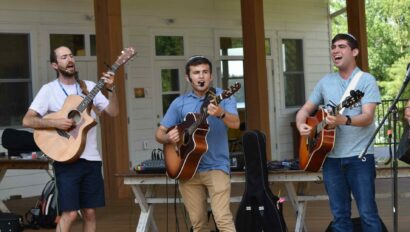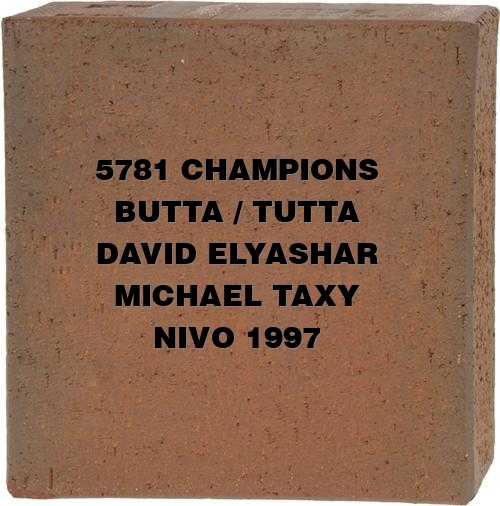
By Jacob Cytryn, Executive Director
If I had to boil my thirty years at camp down to a single metaphor, it would be sitting around a table with three other people, each of us playing the hand we’ve been dealt.
In spite of writing this in the lead-up to Passover, I’m actually not thinking, at all, of the famous Four Children of the Seder. Rather, my mind is abuzz with the countless hours I’ve spent since June of 1994 literally playing hands of cards in what from this day forward is the official card game of Camp Ramah in Wisconsin: euchre. (For way too much information about euchre, check out the Wikipedia page here.) One of our Shoafim (8th grade) counselors, Jon Livney, whom I am pretty sure was new to camp that summer and today holds a Ph.D. in cell and molecular biology, taught us on the mirpeset (porch) of the old, stilted cabin 5/6 (now 4/5). If memory serves, I was in the second game Jon taught, and within days, if not hours, euchre was what a group of us did all the time.
In this space over the last few weeks we’ve heard from diverse voices about our core values: osher / joy, tz’michah / growth, shiluv / inclusion, and k’sharim / connections. Euchre is all those things to me, and more. Euchre, like other good card and board games, playing catch, watching a baseball game, and taking a walk or going on a road trip, is an excuse to hang out with other people and revel in the silent simplicity of life or, if the spirit moves you, to chat about anything on anyone’s mind. Our eidah (age group) quickly developed euchre slang, a dialect I have watched as it has been replicated, replaced, and built on by succeeding generations of campers ever since.
At camp today, we play a game at my table in the dining hall near the end of dinner every Friday night, occasionally, when it’s just three of us and we need a fourth, inviting over some unsuspecting camper or counselor to join us. My long-time, steadfast partner – with a penchant for stacking the deck to keep things interesting for himself – known throughout camp as JAR, joins me on occasion to challenge teams of campers on their porches after lights out. We arrive in matching outfits and make as big a deal of it as possible. This summer I’ll be launching a euchre tournament for staff and campers out of beito (the director’s house). The last night of camp a group of senior staff squeeze in a game between checking on the final hours of programming and providing needed caffeine to the division heads. And this fall I proudly taught my three boys how to play euchre. They’re too young now and it hasn’t stuck yet, but I look forward to wiling away many Shabbatot together playing the game of my youth, and my present.
We’ve seen euchre bridge social circles and allow kids with eclectic interests, and many eccentricities, to hang out with each other and develop friendships. I doubt many a day went by during my camper or counselor years when I didn’t play at least one game of euchre, first with my friends and counselors and then, when I returned on staff, with my friends and campers. We played euchre at USY conventions, trips to see each other in Chicago, the Twin Cities, and St. Louis where I lived.
Perhaps the greatest euchre game I ever played was in a fierce Ramah Wisconsin vs. Ramah Canada showdown on Ramah Israel Seminar, on an army base in the Negev desert. In the shade of the setting summer sun, remembering our adversary’s misguided and over-confident shouting of “Protected left, protected left!” still brings out a chuckle and a smile. We won.
In the depths of the first pandemic winter a former camper of mine from Nivonim ’06, Seth Berkman, organized a tournament, the “Unofficial Ramah Wisconsin 5781 Winter Euchre Invitational,” or URW5781WEI as it came to be known. From November through March the highlight of my week was getting on-line to face down two old friends, utilizing a digital platform with video that, for an hour or so, brought us back to the picnic benches around camp for some good old-fashioned fun. JAR and I proudly made the final four before bowing out to an epic team of a former Rosh Eidah and Rosh Ropes; luckily, our eidah-mates from the ‘90s beat those young guns in the final. And by young guns I mean a pediatrician and someone in corporate finance, both of whom are in their mid-30s.
Writing these stories swells my heart with joyous memories of camp and of relationships from camp. It reminds me of the stepping stones that have brought me to the place I am now – as a master-of-strategy euchre player, of course, but also as a friend, teammate, teacher, and passionate conveyer of tradition from generation to generation. It reminds me of how simple and powerful inclusivity can be, an achievable goal and unspoken value, especially with a deck of twenty-four cards and games to ten. And, as documented above in less detail than I was tempted to include, writing these stories knits together the fabric of a life, one in which JAR and I were perhaps the only players in that on-line pandemic-inspired invitational who knew someone on every other team, but all of us had Ramah in common, and with it a shared game, a shared language, and shared experiences.
And, moving into this Passover, there’s some d’var Torah to be written about euchre and the Four Children. But I’m not going to write it, just revel in the feeling that warms my heart: knowing that, this summer and for years to come, new campers and staff will learn euchre for the first time and many, many more will find joy in playing it.
Hag Sameach and Shabbat Shalom,
Jacob
